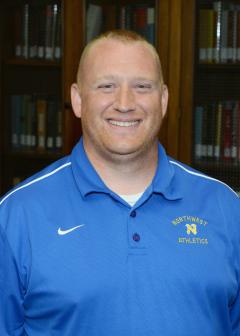Ashbrook Teacher Asks Colleagues: ‘Does our society still hold these principles?’
December 24, 2020

Ashbrook education is deceptively simple. “We sit in a room with a professional historian who asks us probing questions and then just lets us talk.” No other “professional development” program draws on the teachers’ own insights, says Brett Van Gaasbeek, a graduate of Ashbrook’s Masters program. “I learn more listening to my colleagues who teach the same stuff I do than I did when I was an undergrad listening to my history professor lecture.”
 Convinced that high school students learn best in the same way, Van Gaasbeek adapted the Ashbrook approach to his own classroom. Each year he hands his AP US history students a binder of primary documents. This is the reading for the course; the state-issued textbook simply provides historical context. Every Friday, students debate the issues raised by a pair of related documents.
Convinced that high school students learn best in the same way, Van Gaasbeek adapted the Ashbrook approach to his own classroom. Each year he hands his AP US history students a binder of primary documents. This is the reading for the course; the state-issued textbook simply provides historical context. Every Friday, students debate the issues raised by a pair of related documents.
This approach succeeds. At Northwest High School, a blue-collar suburb of Cincinnati, Van Gaasbeek prepares college-tracked sophomores for AP US government and European history, helping them score well enough on the AP exams to earn money-saving college credits. Focusing on primary documents gives students the critical thinking skills that the remodeled AP exam requires.
Van Gaasbeek “felt sad” when he graduated from the Ashbrook Masters program in American History and Government last August, since it meant no more summer seminars in Ashland. Knowing teachers need ongoing opportunities to talk about their content area, he wanted to share the Ashbrook approach with colleagues. He persuaded his department chair to devote part of a teacher workday to a “primary document roundtable.”
Social studies teachers and the special education teachers who support their classes were invited, as well as English faculty (a new teaching standard requires that they teach nonfiction historical texts). Van Gaasbeek led a discussion of two documents in Ashbrook’s 50 Core Document collection: the Declaration of Independence and Calvin Coolidge’s speech on the 125th anniversary of the Declaration.
While some social studies teachers admitted to never having read the entire Declaration, many of the English teachers said they’d never read the Declaration at all. “So we did what Ashbrook seminars do,” Van Gaasbeek said. “We asked, ‘Would this document motivate you to take a weapon and stand your ground against the British?’ They talked about taxes and government search and seizures, saying, ‘I wouldn’t want the British taking over my home and my things.’” Then Van Gaasbeek asked about the speech of Coolidge: how did his economic policies relate to principles in the Declaration? Finally, “We asked, ‘Does our society still hold these principles?’
“Later, all 20 teachers responded anonymously to a survey: ‘We’d love to do that again.” They said we’d helped them look for the bigger picture in the documents”—not only their historical context, but also their continuing relevance.
Van Gaasbeek’s department chair led the next roundtable. Teachers discussed speeches of Lyndon Johnson and Ronald Reagan on government welfare programs. “Many of our students receive welfare support. What can we do to help them if the system has not worked as intended?
“Our coworkers said, ‘We’ve never discussed a sensitive political subject like this in class.’ So we said, ‘We just had an open conversation, and nobody got hurt. If you insist that everyone be respectful, you can do this.’”
The goal is teaching students “to be good citizens. Many of our graduates join the military. Why are they willing to put their lives on the line for this country? I hope they understand our structure of government and fight to preserve it.”
Sharing the Ashbrook educational approach with colleagues and students, Van Gaasbeek furthers his goal—and multiplies Ashbrook’s ability to strengthen the capacity of Americans for Constitutional self-government.

